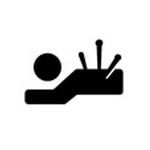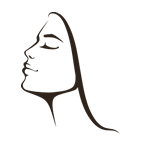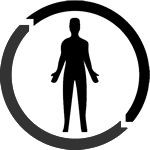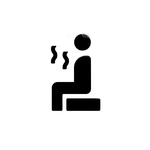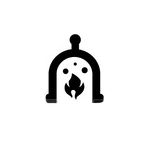Acupuncture is a holistic health technique that stems from Traditional Chinese Medicine practices in which trained practitioners stimulate specific points on the body by inserting thin needles into the skin.
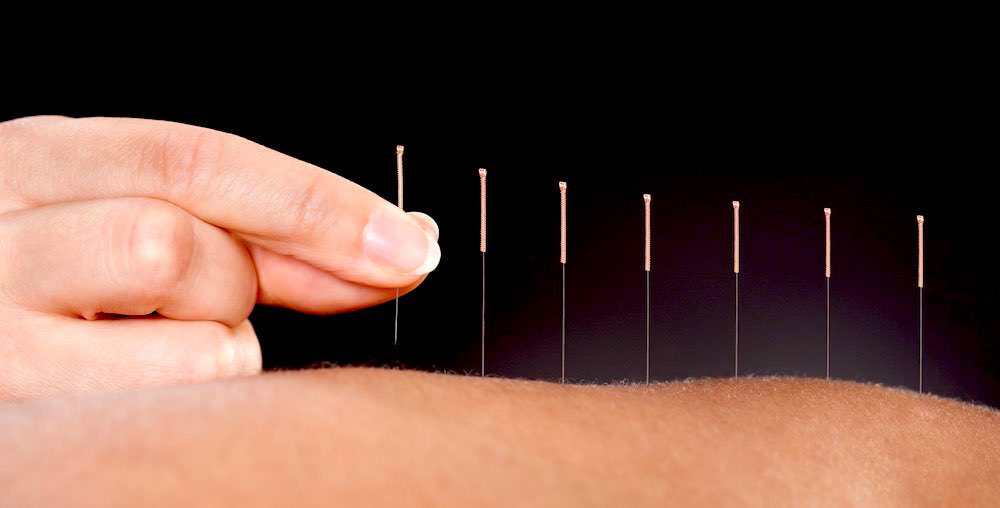
Today acupuncture is one of the most popular practices of Traditional Chinese Medicine (TCM) in the West. TCM is a complimentary health approach that first originated in ancient China more than 2,500 years ago and has been evolving ever since.
To treat a wide variety of diseases, pain and stress-related symptoms, practitioners of TCM use holistic techniques that include acupuncture, herbal medicines, tai chi, qi gong, massage therapy, and various “mind and body practices.”
What Can Acupuncture Treat?
Eye, Ear, Nose, Throat Disorders
Earache, Nerve deafness, Poor eyesight, Rhinitis, Ringing in the ears, Sinusitis, Sore throat, Toothache
Gastrointestinal Disorders
Abdominal bloating, Colitis, Constipation, Diarrhea, Dysentery, Food allergies, Gastritis, Hemorrhoids, IBS , Prolapsed rectum, Spastic colon, Ulcers
Emotional and Psychological Disorders
Anxiety, Depression, Dizziness, Insomnia, Stress
Circulatory Disorders
Anemia, Angina pectoris, Arteriosclerosis, High blood pressure
Immune Disorders
Chronic fatigue, Lupus
Musculoskeletal and Neurological Disorders
Arthritis, Back pain, Bursitis, Cervical Spondylopathy, Headache, Hemiplegia, Migraines, Muscle spasms, Neuralgia, Rheumatoid Arthritis, Sciatica, Sprains, Stiff neck, Stroke, Tendonitis, Trigeminal neuralgia
Respiratory Disorders
Allergies, Asthma, Bronchitis, Common colds and flu’s, Emphysema
Gynecological Genitourinary Disorders
Breech position, Chronic bladder infection, Endometriosis, Fibroids, Impotence, Infertility, Irregular menstruation, Kidney stones, Mastitis, Menopause, Morning sickness, Nephritis, Premenstrual syndrome, Prolapsed uterus, Sexual dysfunction, Urinary Tract Infection,
Miscellaneous
Adiposity, Diabetes, Hepatitis, Night sweating, Stop smoking
Cosmetology
Acne, Alopecia areata, Alopecia seborrheica, Bell’s palsy, Bromhidrosis, Chloasma, Common wart, Eczema, Flat wart, Hordeolum, Lentigo, Leukoderma, Myopia, Neurodermatitis, Prematurely grey, Prosopospasm, Psoriasis, Ptosis, Shingles, Stiff neck, Urticaria, Wrinkle
Is acupuncture safe?
Yes, if performed by a qualified, conscientious
practitioner. Licensed Acupuncturists know the human
anatomy well, and insert needles in a safe fashion. The
instruments used to penetrate the skin are sterile,
disposable after a single use. The practitioner is well
aware of the concern over infectious diseases, and
takes every measure to insure cleanliness as all health
care professional do.
Bleeding rarely occurs, unless done so on purpose in
specific situations. Even then the amount is minimal and
in no way dangerous.
Does acupuncture hurt?
No, most people who have had acupuncture would
describe it as virtually painless or far less painful than
plucking out a hair. The sensations that follow range
from nothing at all, to mild tingling, to slight numbness /
ache, to electrical pulsations in areas distant from the
site of insertion. All these sensations usually subside
once the needles are removed. The acupuncture
needles are solid and much thinner than the standard
dermal needles; so small that they do not draw blood at
all.
How long does it take to see results?
That depends. Just like western medicine, successful
results are never guaranteed. Some patients feel better
and cured after the very first treatment while others with
chronic diseases may be treated multiple times before
seeing results. Factors to consider are the type of
illness, its severity, the frequency of treatments, and
how the body reacts to acupuncture.

